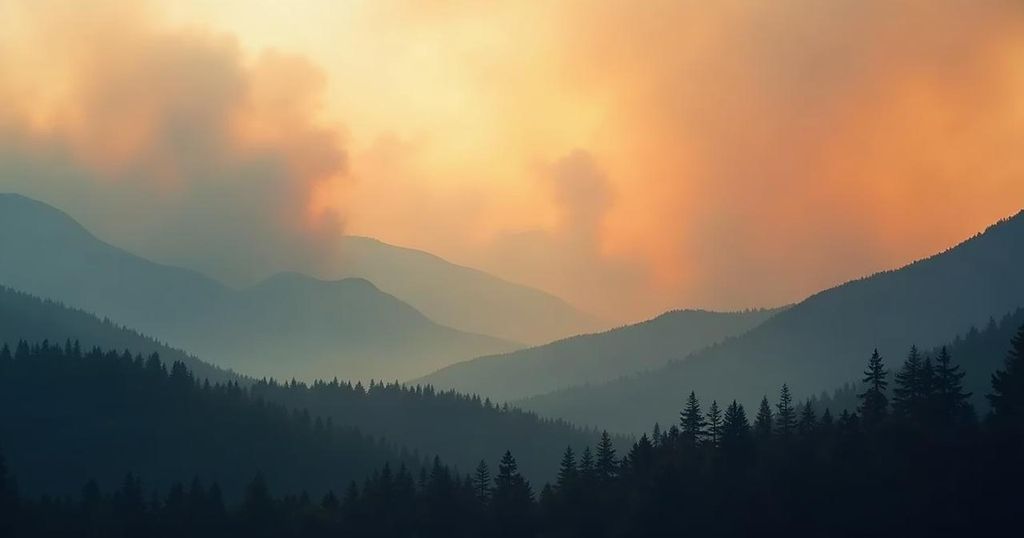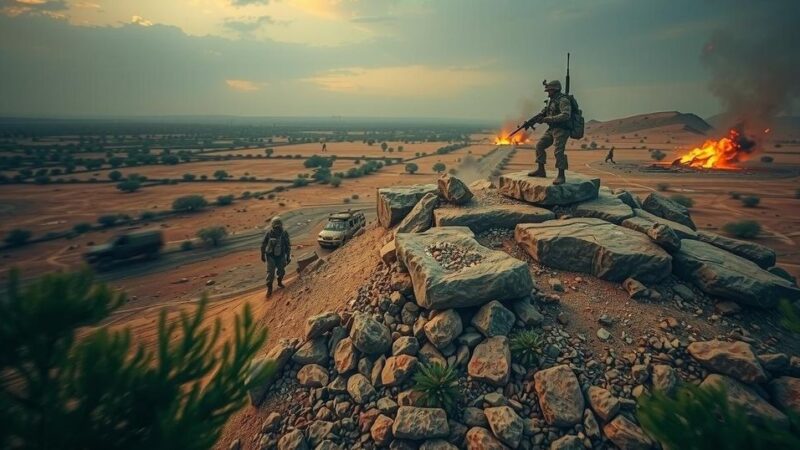Extensive wildfires across South America, particularly in the Amazon, have led to a severe ecological crisis. Smoke has rendered cities like Porto Velho nearly uninhabitable, contributing to respiratory issues among residents. Experts attribute the crisis to human practices exacerbated by climate change. The urgent need for collective action is emphasized to mitigate further damage to the environment and the health of local populations.
The dramatic decline in air quality across South America serves as a stark reminder of the environmental catastrophe unfolding in the region. Once celebrated for its pristine blue skies, Rondônia, a significant area of the Amazon rainforest in Brazil, is now enveloped in thick smoke due to extensive wildfires. These fires, predominantly instigated by human activities, have not only obscured the landscape but have also rendered Porto Velho, Rondônia’s riverside capital, nearly uninhabitable, causing flight cancellations and school closures. Dr. Lilian Samara de Melo Lima, a local physician, highlights the surge in respiratory ailments among her patients, attributing these health crises to the rampant wildfires exacerbated by reckless land clearing by ranchers and farmers during the Amazon’s traditional burning season. This year, however, has proven exceptionally severe, marked by the destruction of substantial areas that were once untouched natural habitats. Health officials indicate that the deterioration in air quality affects all inhabitants of the region, as an increase in fire hotspots has been observed across several South American countries including Colombia, Guyana, and Venezuela, primarily linked to extended periods of drought and climate change. Erika Berenguer, an expert from Oxford University, emphasizes that the problem extends beyond Brazil, affecting nearly the entire continent. In Paraguay, the flames have not only led to devastating losses in the Chaco ecosystem but have also compromised the livelihoods of local communities reliant on agriculture. Meanwhile, in Peru, at least 20 individuals have perished due to wildfires that have ravaged the Andean region and Amazonian territories; an emergency has been declared in multiple regions, as fires encroach upon significant landscapes used by indigenous peoples. Ecuador has similarly been impacted, as paramedics like Christian Rivera witness firsthand the extraordinary scale of the crisis, connecting it directly to global climate changes. In Bolivia, President Luis Arce has declared a national disaster due to the extensive damage, with millions of hectares consumed by fire, emphasizing the urgent need for action. Locally, health secretary Marilene Penati underscores the gravity of the situation, expressing despair over the current environmental crisis and urging for collective action to care for the planet. She poignantly states, “The Earth is sick … the Earth is crying out for help,” quoting recent words from Pope Francis and highlighting a profound need for humanity to listen and respond to the ailing planet.
This article highlights the environmental devastation resulting from massive wildfires throughout South America, particularly in the Amazon rainforest. Traditional practices of land clearing for agriculture and ranching are exacerbated by extreme drought conditions linked to climate change and phenomena such as El Niño. The widespread effects of these fires, including health crises, loss of biodiversity, and economic impacts on local communities, illustrate the urgency of addressing the root causes of this ecological disaster.
The fires raging across South America, driven by human activities and exacerbated by climatic conditions, have resulted in widespread ecological and health crises. As communities struggle to cope with the deteriorating air quality and the effects on their livelihoods, experts and local leaders alike urge for immediate action to avert further destruction. The ongoing environmental catastrophe calls for a collective response, emphasizing the need to recognize and rectify humanity’s relationship with nature before it is too late.
Original Source: www.theguardian.com






